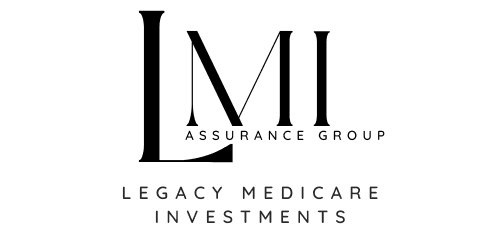Debunking Myths About Legacy Planning: What You Really Need to Know
Understanding Legacy Planning
Legacy planning is a crucial aspect of financial management that ensures your assets are distributed according to your wishes after you pass away. However, there are numerous myths surrounding the topic that often lead to misconceptions. In this blog post, we'll debunk some of these myths and provide you with accurate information to help you make informed decisions.

Myth 1: Legacy Planning is Only for the Wealthy
A common misconception is that legacy planning is only necessary for those with significant wealth. In reality, anyone with assets, regardless of their value, can benefit from having a plan in place. This includes not only financial assets but also personal belongings and digital assets. Legacy planning isn't about wealth; it's about ensuring your wishes are honored.
Even if you don't have a large estate, consider how you want your possessions and any sentimental items to be distributed. This can help prevent any potential disputes among family members and ensure that your intentions are clear.
Myth 2: It's Too Early to Start Planning
Another myth is that legacy planning is something to be considered later in life. However, unexpected events can happen at any age, making it important to start planning early. By establishing a plan now, you provide peace of mind for yourself and your loved ones, knowing that your affairs are in order.

Moreover, starting early allows for more flexibility in adjusting your plan as your circumstances change. Whether you experience life events such as marriage, the birth of a child, or a change in financial status, having a framework in place makes it easier to update your plans.
Myth 3: A Will is Sufficient
While a will is a fundamental component of legacy planning, relying solely on it may not cover all aspects of your estate. A comprehensive legacy plan often includes other tools such as trusts, power of attorney, and healthcare directives. Each tool serves a unique purpose, ensuring that different aspects of your estate are managed according to your wishes.
For example, a trust can help manage assets for beneficiaries who are minors or individuals who may need assistance handling finances. Meanwhile, healthcare directives specify your preferences for medical care if you're unable to communicate them yourself.

Myth 4: Legacy Planning is Complicated
Many people shy away from legacy planning because they perceive it as complex and difficult to navigate. However, the process can be simplified by consulting with an experienced estate planner or attorney who can guide you through each step. These professionals can help demystify the legal jargon and ensure that all necessary documents are correctly prepared and filed.
Additionally, there are numerous resources available online that can provide guidance and templates for those who prefer a DIY approach. Taking small steps toward planning can make the entire process more manageable.
Final Thoughts
Debunking these myths about legacy planning highlights the importance of taking proactive steps to secure your future and that of your loved ones. By understanding the realities of legacy planning, you can create a plan that truly reflects your wishes and provides peace of mind. Remember, it's never too early or too late to start planning for the future.
